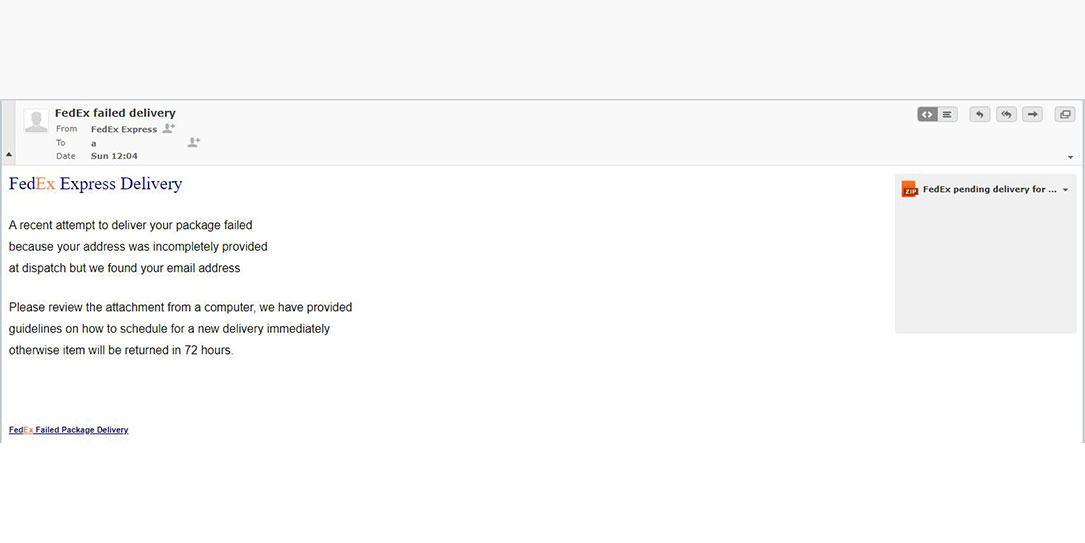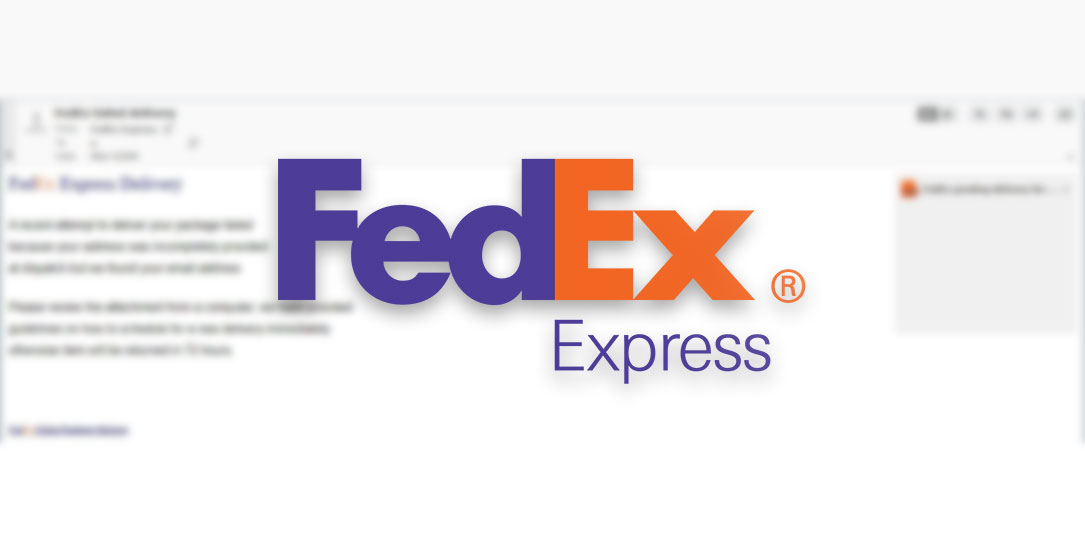FedEx phishing emails aren’t a new thing. Hackers have been using brand names to deliver malicious emails for some time now. They use everything from delivery service names to bank names to try and get at users’ private information.
Many of these brands warn against opening and clicking on links in any emails sent to them bearing their name. This new wave of FedEx phishing emails bears those same warnings and the hackers change their approach every time they try to use these methods.
FedEx addresses fraudulent emails on its website saying, “FedEx does not send unsolicited emails to customers requesting information regarding packages, invoices, account numbers, passwords or personal information.”
The latest phishing email is done well enough that it will fool the most basic users. For those of us who have some technical knowledge and experience with such things, it’s an obvious phishing scam. This is what the email looks like, there may be some variations here and there but this is basically it.

As you can see, the email gives no details regarding your package or delivery but only provides a link to click and a zip file to download. The link and zip file are obvious giveaways to those with knowledge of FedEx phishing emails and others like it. But for those who aren’t as versed in such things, it looks very legitimate. Here’s what FedEx says about these types of emails and what you should do:
- We have received reports of fraudulent emails with the subject line “FedEx: Delivery Problems Notification.” These emails can contain links which, when clicked, will connect the user to a site which then infects their computer.
- These links can point to any number of infected websites all over the globe. Some of these sites may look like fedex.com, while others do not.
- If you receive a message matching the description below, do not open the email or click on the hyperlink. Delete the email immediately or forward it to abuse@fedex.com.
These emails are easy to get fooled by, especially if you receive a lot of packages or if you are expecting a package. The best thing to do is ignore these emails and if you have a package you’re worried about, contact FedEx via telephone or use their Twitter Help account.
What do you think of these FedEx phishing emails? Have you ever gotten one? Let us know in the comments below or on Twitter, or Facebook. You can also comment on our MeWe page by joining the MeWe social network.
Last Updated on February 3, 2021.










